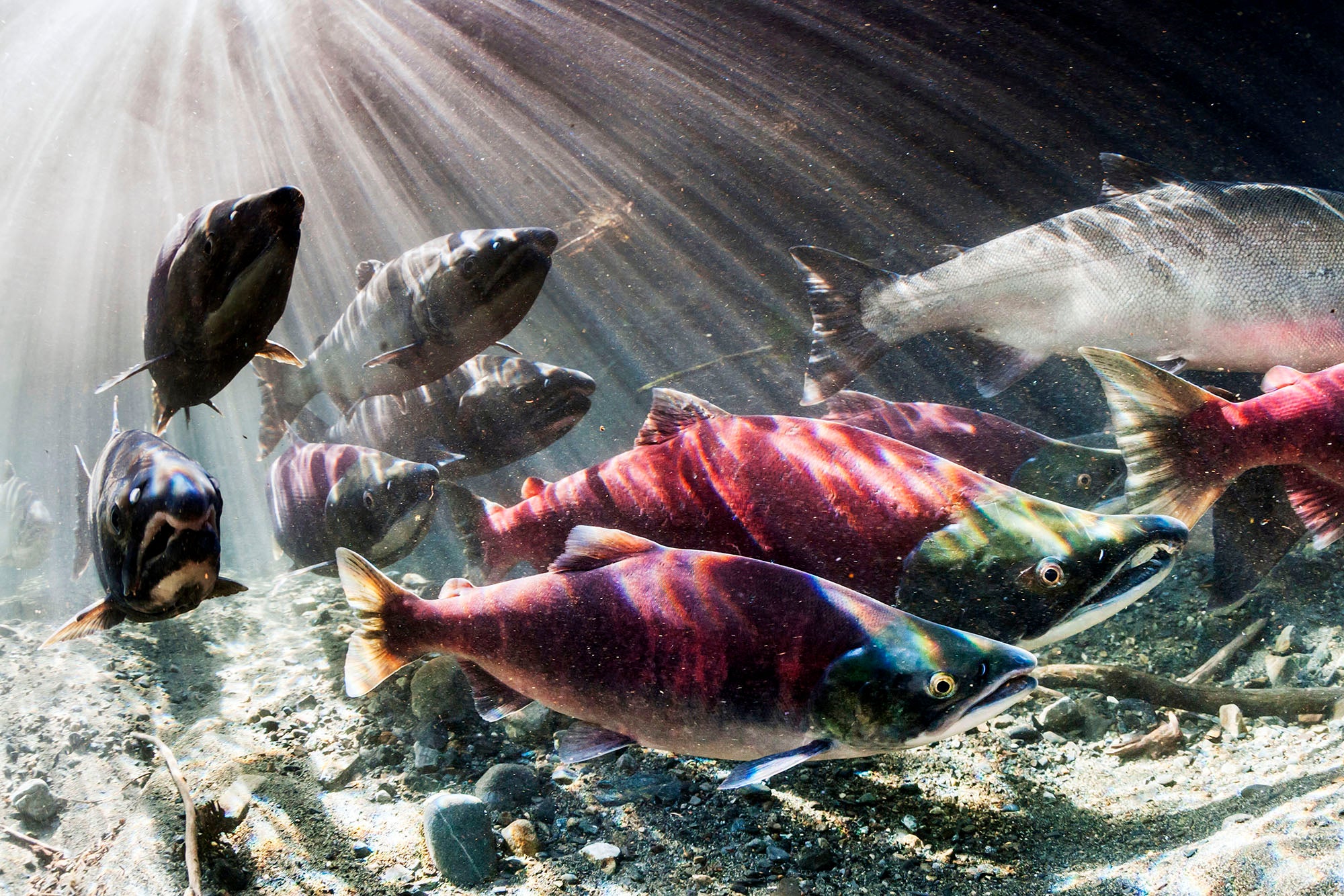U.S. Fishing Groups Sue Tire Manufacturers Over 6PPD Impacts on Salmon, Steelhead
6PPD interacts with ozone to create the highly toxic 6PPD-q
Contact
The Institute for Fisheries Resources (IFR) and the Pacific Coast Federation of Fishermen’s Associations (PCFFA) today filed suit against U.S. tire manufacturers over the use of the chemical 6PPD in rubber tires because of its devastating impacts on Endangered Species Act (ESA) — protected salmon and steelhead. When 6PPD reacts with ground-level ozone, it transforms into 6PPD-q — the second-most toxic chemical to aquatic species ever evaluated, second only to the chemical war agent parathion that has been banned around the globe. Exposure to 6PPD-q can kill coho salmon within hours, and the chemical is largely responsible for “urban runoff mortality syndrome,” which kills up to 100% of coho returning to spawn in many urban streams.
“There is simply no excuse, now that the science is clear how toxic 6PPD-q is to fish, for the tire industry to keep using 6PPD,” said Glen Spain, executive director of IFR and PCFFA, both organizational plaintiffs in this case. “To keep using a chemical not only pushing valuable salmon runs toward extinction but also destroying fishing-dependent jobs up and down the west coast should not be allowed.”
6PPD-q is also toxic to other species of salmon such as Chinook, which are vitally important for ocean harvests, and which once supported tens of thousands of commercial salmon fishing west coast jobs. California’s entire salmon fleet has been thrown out of work this year because too few salmon have been surviving as juveniles in the state’s rivers, many of which are now polluted by 6PPD-q from urban runoff. Very low coho numbers also legally restrict commercial salmon harvesters from access to more abundant Chinook fisheries, and thus also severely limit their catch.
“Tire companies are violating the Endangered Species Act by continuing to use 6PPD in tires,” said Elizabeth Forsyth, senior attorney with Earthjustice’s Biodiversity Defense Program. “Manufacturers have known for years that they must invest in viable alternatives, yet they continue to kill critically imperiled salmon and other fish protected under the ESA. It is time for these companies to be held accountable for the devastating impact 6PPD-q has had on our fisheries.”
The fishing groups brought their enforcement action under Section 9 of the ESA against 13 of the largest U.S. tire manufacturers, including Goodyear, Michelin, and Bridgestone. The complaint states that 6PPD in tires is imperiling the recovery of 24 populations of coho, Chinook salmon, and steelhead trout that are listed as endangered or threatened under the ESA. Tire manufacturers’ use of 6PPD generates and contributes to ongoing, ubiquitous contamination of surface waters near roads with 6PPD-q, harming coho and Chinook salmon, steelhead trout, and many other fish and aquatic species.
The Environmental Protection Agency recently granted a petition to address the use of 6PPD in tires to help protect salmon. The agency agreed with petitioners that it was “necessary to initiate” risk management rulemaking under the Toxic Substances Control Act “to address risk to the environment from 6PPD-quinone, a degradant of 6PPD.” The EPA noted that “concentrations of 6PPD-quinone in stormwater in the Pacific Northwest were found to be lethal to coho salmon after only a few hours of exposure.”
Salmon and steelhead are keystone species that support entire ecosystems. At least 135 other species depend on salmon and steelhead for food, including southern resident killer whales (SRKW), eagles, bears, wolves, and seals. Robust salmon stocks are also important to the national economy, once supporting an estimated 16,000 jobs in the west coast’s commercial and recreational fishing industry.
Tire manufacturers have used 6PPD since the 1950s to keep tires from degrading too quickly. At the tire’s surface, 6PPD interacts with ozone to create several transformation products, including 6PPD-q. 6PPD-q is then picked up during storm events and discharged into nearby waterways. The chemical is not only present in stormwater runoff and urban watersheds, but also in sediments and soils, household dust, and even human urine. Emerging science has also pointed to high toxicity in mammals, indicating a potential risk to human health. There are a number of potential alternatives to the use of 6PPD in tires. Funding additional research to identify alternatives, and retool their factories to use those alternatives is well within the capability of the tire industry, and should be its highest priority.
Earthjustice filed the lawsuit in California Northern District Court on behalf of the Institute for Fisheries Resources and Pacific Coast Federation of Fishermen’s Associations. PCFFA is the west coast’s largest trade association of commercial fishing families, and IFR, PCFFA’s sister organization, works on behalf of those fishing families and their coastal communities to protect and maintain sustainable ocean fisheries, including California’s once-abundant salmon fisheries. The lawsuit was filed by Earthjustice’s Biodiversity Defense Program, Northwest Regional Office, and California Regional Office.

Additional Resources
About Earthjustice
Earthjustice is the premier nonprofit environmental law organization. We wield the power of law and the strength of partnership to protect people's health, to preserve magnificent places and wildlife, to advance clean energy, and to combat climate change. We are here because the earth needs a good lawyer.